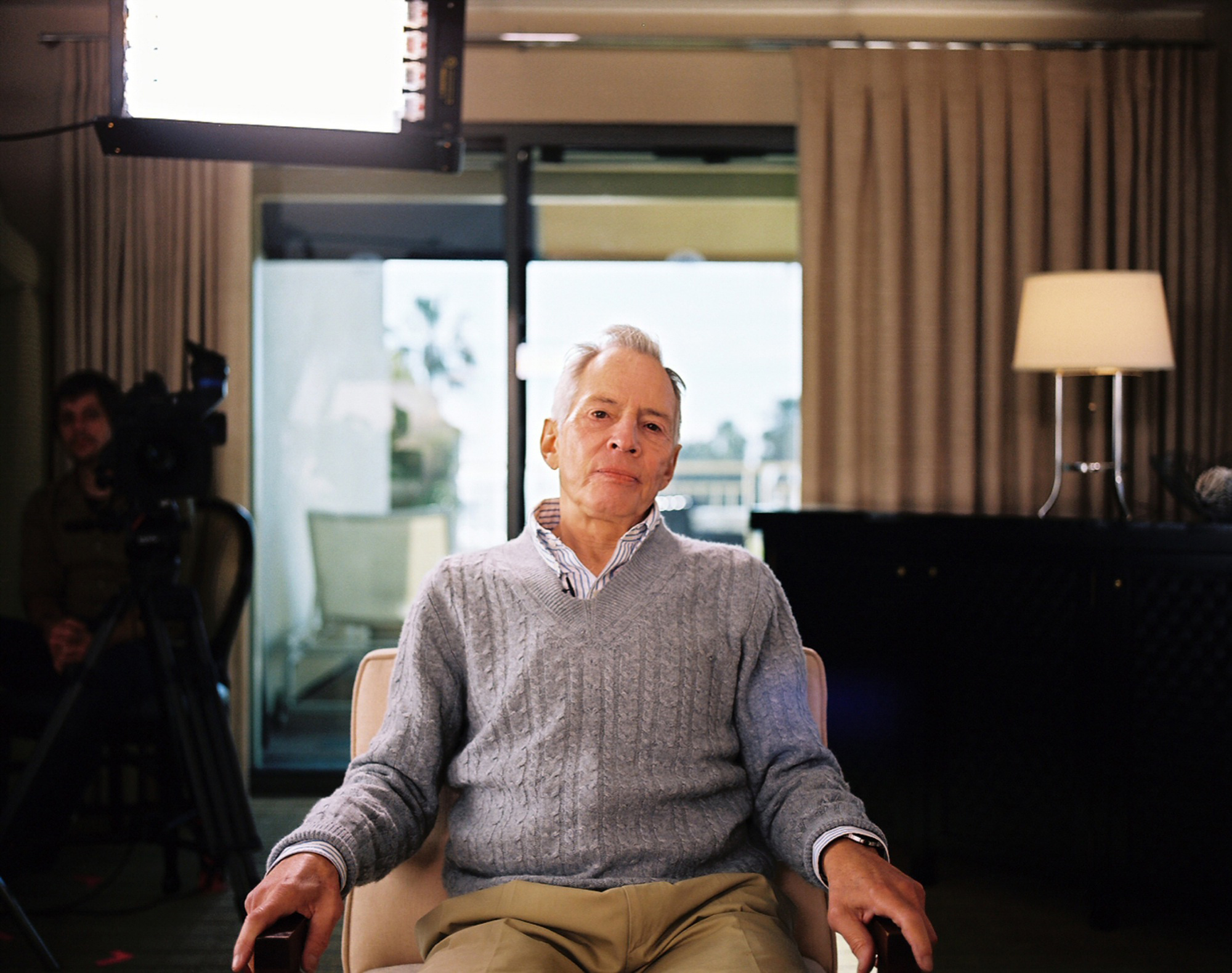The Jinx's Robert Durst, and the power of why
It's not so much what Durst said. It's why he said it.


A free daily email with the biggest news stories of the day – and the best features from TheWeek.com
You are now subscribed
Your newsletter sign-up was successful
As I listened to Robert Durst all but confess to three murders on HBO's The Jinx on Sunday night, my heart rate sped up. My attention focused intently on the intonation of his voice. All extraneous thoughts melted away. The camera had caught history in real time. It was uncanny.
But historic and mezmerizing as it was, I expect these experiences to be much more common in the very near future. My first thoughts, when the credits rolled, were of Edward Snowden. In CitizenFour, Laura Poitras shows us Snowden committing his perhaps necessary treason in real time. I remembered the vignette of him brushing his hair in anticipation of an interview that will out him to the world.
Durst did not expect (so far as we know) a hot mic to catch his private panic. But he had invited filmmaker Andrew Jarecki inside his world, had given him access to everything and everyone in his life, and all but dared Jarecki to reinvestigate the murders that Durst insists he did not commit. Maybe Durst willed the conclusion upon himself. He certainly wanted the attention that a documentary was sure to bring him.
The Week
Escape your echo chamber. Get the facts behind the news, plus analysis from multiple perspectives.

Sign up for The Week's Free Newsletters
From our morning news briefing to a weekly Good News Newsletter, get the best of The Week delivered directly to your inbox.
From our morning news briefing to a weekly Good News Newsletter, get the best of The Week delivered directly to your inbox.
Whenever something major happens, no matter when or where it happens, we now expect that someone has caught the happening on video. Police shootings are better documented today than ever before. Try to think of a major recent incident or scandal that wasn't entirely or partially caught on camera. The brutality of ISIS is constantly captured on film. So are the civilian casualties caused by the strikes of drones and aircraft. So are surgical accidents. So are sex romps in rooftop parking lots.
It's not just the ubiquity of cameras or their connection to the Internet of Things, which makes them instantly available to all of us; it's that human beings insist on documenting their experience, an instinct that is as old as the species itself. We take far more pictures than we'll ever browse through. We take them because we don't want to miss something in front of us, and we don't trust that our brains will allow us to re-experience that happening in all its sensory richness. Snowden had a political motive for recording his story; being able to see him made him a lot more human to us. He was not some anonymous intelligence bureaucrat. He was a regular guy with scruff and ill-fitting glasses.
To be sure, there are plenty of moments we want to keep to ourselves. The older we become, the more we appreciate the lived experience. The constant watching and rewatching of everything, and the behaviors that it promotes (exhibitionism, consumerism, trolling, rushes to judgment) have not been re-balanced by adjusting other parts of our life. I think the recent mainstreaming of meditation is one possible counter-balance.
But I wonder what it means for the news business, for the law, and for ourselves, if we now expect to see everything we might have only heard about in the past. On the one hand, it might help us hold everyone more accountable. (We don't trust Hillary Clinton to tell the State Department which emails are relevant, for example). On the other hand, it is so easy to get lost in the immediacy of the moment, and to make very rash and consequential decisions based simply on our sensory experience, rather than on considered thought, or slowed-down thinking. Why often matters more than what.
A free daily email with the biggest news stories of the day – and the best features from TheWeek.com
In a new book called Future Crimes, technologist Marc Goodman makes a strong case that the infrastructure that permits real-time access to everything is easily manipulatable by liars, cheats, hackers, and governments, and that they will figure out how to manufacture reality from reality, without us really knowing it. Everything is connected, he writes, and so everyone is vulnerable. (He focuses on nantotechnology, hacking DNA, and other scary possibilities.)
So what do we do? We learn how to become better, more discriminating consumers of information. It means in this instance that after the wow factor wears off, that we don't take Robert Durst's seeming confession at face value. We remember to think about its context and motive, too.
Marc Ambinder is TheWeek.com's editor-at-large. He is the author, with D.B. Grady, of The Command and Deep State: Inside the Government Secrecy Industry. Marc is also a contributing editor for The Atlantic and GQ. Formerly, he served as White House correspondent for National Journal, chief political consultant for CBS News, and politics editor at The Atlantic. Marc is a 2001 graduate of Harvard. He is married to Michael Park, a corporate strategy consultant, and lives in Los Angeles.
-
 ‘Those rights don’t exist to protect criminals’
‘Those rights don’t exist to protect criminals’Instant Opinion Opinion, comment and editorials of the day
-
 Key Bangladesh election returns old guard to power
Key Bangladesh election returns old guard to powerSpeed Read The Bangladesh Nationalist Party claimed a decisive victory
-
 Judge blocks Hegseth from punishing Kelly over video
Judge blocks Hegseth from punishing Kelly over videoSpeed Read Defense Secretary Pete Hegseth pushed for the senator to be demoted over a video in which he reminds military officials they should refuse illegal orders
